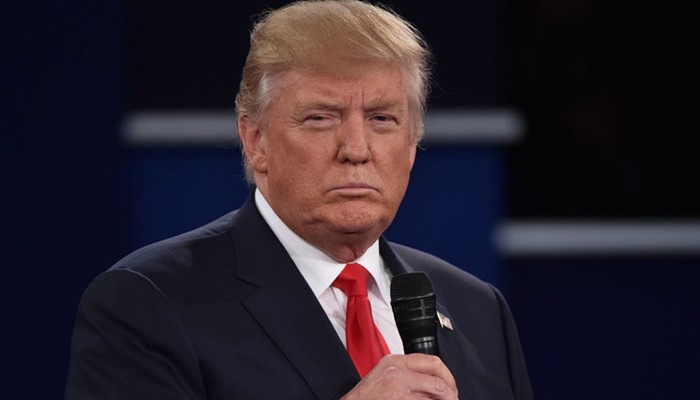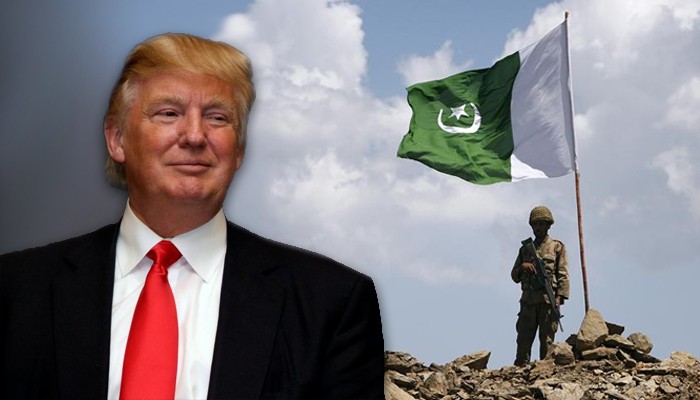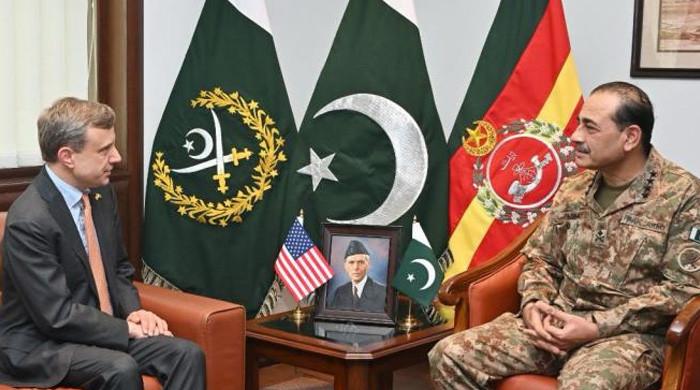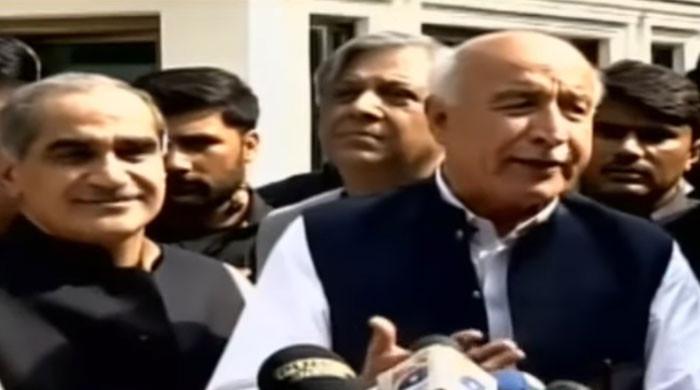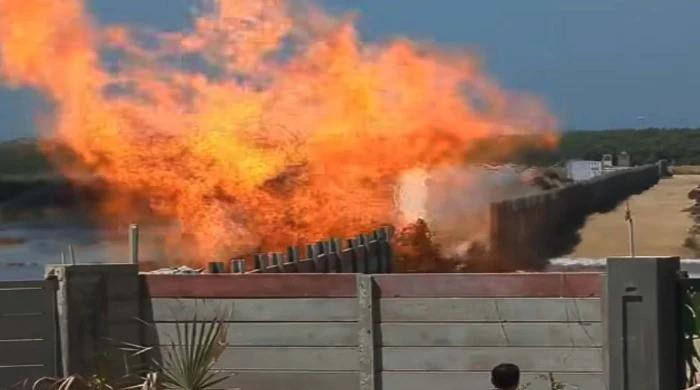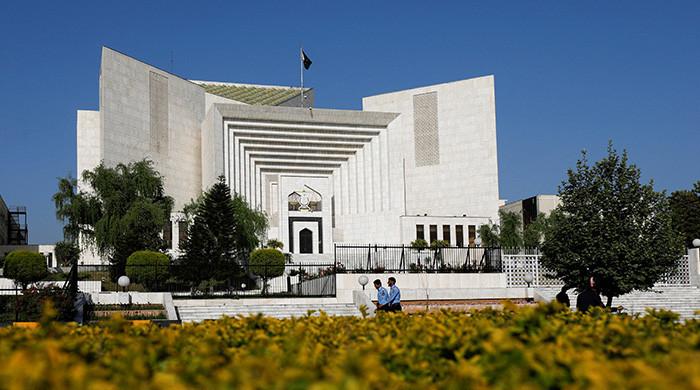Foreign Minister Asif says Pakistan alliance with US 'over'
'We do not have any alliance [with the US], this is not how allies behave,' the minister said
January 07, 2018
Pakistan's alliance with the United States seems to be coming towards an end following the latter's decision to suspend security aid, Minister of Foreign Affairs Khawaja Asif told the Wall Street Journal in an interview late Saturday night.
Asif said he believes the US-Pakistan relations are now at risk, especially after the tensions heightened and moods turned sour when President Donald Trump warned Islamabad to "do more" against terrorists, to whom, he alleged, the country provides safe havens.
“We do not have any alliance [with the US], this is not how allies behave," the minister told WSJ.
On New Year's Day, US President Donald Trump tweeted that the US had "foolishly" given Pakistan over $33 billion in aid over the past 15 years, adding that Islamabad gives "safe havens to the terrorists we hunt in Afghanistan, with little help".
"No more!” he had warned.
Later, on Friday, the US announced it was suspending aid worth $255 million as well as the transfer of military equipment and security-related funds to Islamabad.
"Today, we can confirm that we are suspending security assistance only to Pakistan at this time," Heather Nauert — the spokesperson for the Department of State — disclosed in a press briefing.
The suspension of security assistance to Islamabad came after Washington accused Pakistan of playing a “double game” on fighting terrorism and warned Islamabad it would have to do more if it wanted to maintain aid without interruptions.
The same day, Major General Asif Ghafoor — the Director-General of Inter-Services Public Relations (ISPR) — underscored the suspension would impact the bilateral security cooperation and regional peace.
The “suspension of security assistance will not affect Pakistan’s resolve to fight terrorism; however, it, for sure, will have an impact on Pakistan-US security cooperation and efforts towards regional peace,” the Army spokesman had commented.
Foreign Minister Asif said that the nation had erred when it became a party in the 2001 US campaign against Afghanistan, calling it a “huge mistake”.
That decision, more than a decade ago, brought about the terrorist counteraction that seeped into Pakistan, creating a problem way bigger than could have been anticipated.
Still, the US continues to assert that Pakistan harbours terrorists, asking it to "clamp down on sanctuaries used by the two militant groups to plan attacks, collect weapons, and allow fighters to recuperate".
But Islamabad, on the other hand, reiterates its woes, stating that the US has overlooked the Pakistan Army's sacrifices — both in terms of personnel and cost — and doesn't credit its effort in pushing back Al Qaeda.
Further, military's spokesperson Maj. Gen. Ghafoor said, “We have done enough and we cannot do any more,” indicating that Pakistani forces are already fully engaged in border protection and fighting other extremist groups.
In all, this back-and-forth has complicated the already strained ties between the two nations.
Similar to how an NYT story on Sunday claimed that Trump cannot bear to sever the linkages with its "longtime" ally Pakistan — which could pave way for even better Sino-Pak relations — BMI Research said in its Friday report the US decision “will likely accelerate Pakistan’s geopolitical drift towards China”.
According to the WSJ, a senior official in the Trump administration said the American leadership is “angry and dissatisfied” with how Pakistan has replied as well as “the continued linkages we see between the Pakistan security services and the Haqqani network”.
Asif, who told the publication that the US "had turned Pakistan into a 'whipping boy' for its failures in Afghanistan", said the situation in the country is relatively calm at present.
Asif added that Pakistan has allies in China, Iran, Russia, and Turkey and is, therefore, “not alone”.
However, “if we go against [Afghan insurgents], then the war will again be fought on our soil, which will suit the Americans.”
What Pakistan could stand to lose, nonetheless, is access to global financial institutions or measures such as the infamous travel bans.
